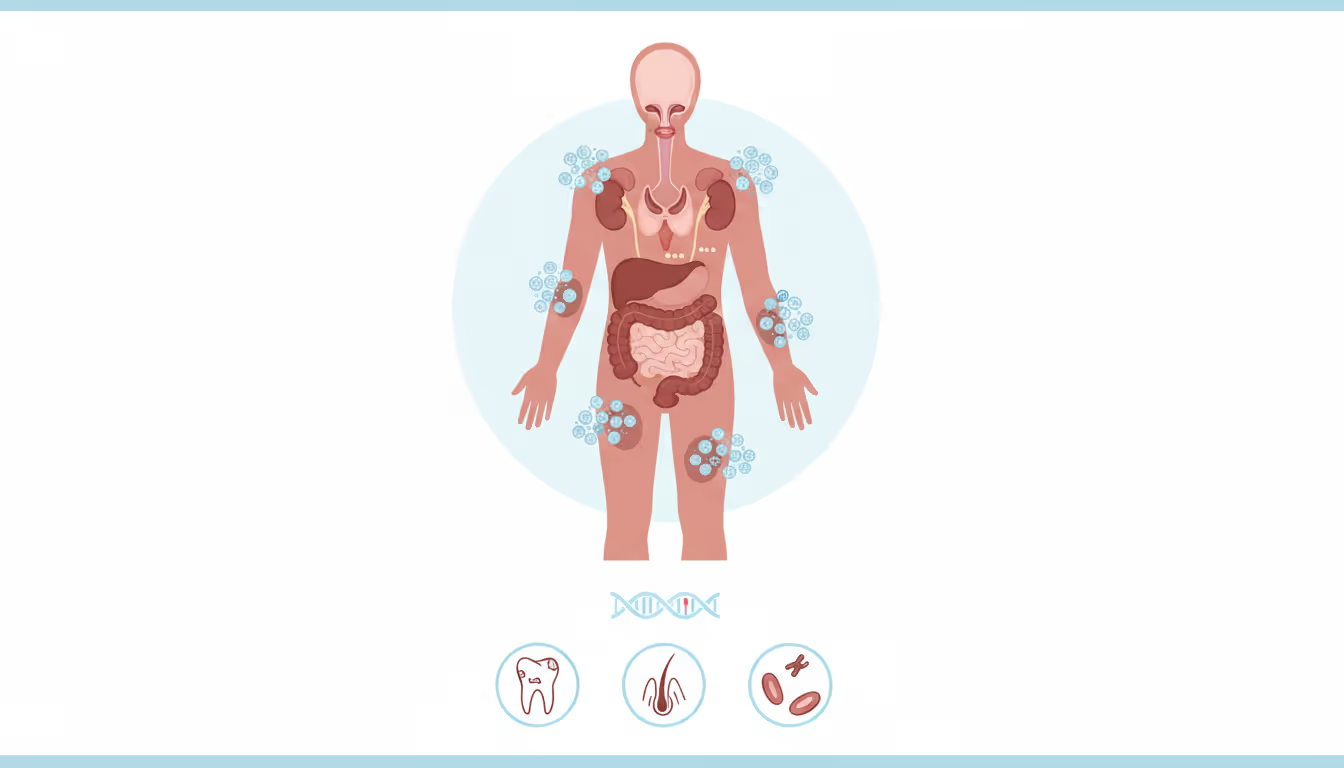
Autoimmune Polyglandular Syndrome (APS) is a genetic disorder notable for its diverse clinical manifestations, typically defined by the presence of at least two of the following three conditions: underactivity of the parathyroid glands, which regulate calcium levels, adrenal insufficiency, and another unspecified condition. It was the first widespread disease linked to a single gene defect. The term "autoimmune" refers to the immune system, which usually protects the body from harmful invaders, mistakenly attacking the body's own tissues, including skin, joints, liver, and more. Common systemic autoimmune diseases include rheumatoid arthritis, lupus, Sjögren's syndrome, vitiligo, Goodpasture syndrome, thyroiditis, and others.In 1997, researchers discovered a new gene on chromosome 21q22.3, named AIRE (autoimmune regulator). Mutations in the AIRE gene cause APS. This condition is inherited in a recessive pattern, meaning a child must inherit two mutated AIRE genes, one from each parent, to develop the disease. Although APS is rare, it is more prevalent in certain isolated populations, such as Finnish, Iranian Jews, and Sardinians.Children with APS may experience issues in multiple glands (polyglandular), including hypoparathyroidism, gonadal failure, adrenal insufficiency, type 1 diabetes (insulin-dependent) due to insufficient insulin production by the pancreas, and thyroid underfunction. Additional symptoms of APS include total hair loss (alopecia totalis), inflammation of the cornea and conjunctiva (keratoconjunctivitis), underdeveloped dental enamel, early-onset yeast infections (candidiasis), juvenile-onset pernicious anemia, gastrointestinal issues (constipation, diarrhea), and chronic active hepatitis.Laboratory tests reveal signs of an immune disorder, such as low levels of gammaglobulin antibodies (hypogammaglobulinemia) and an abnormal T4/T8 white blood cell ratio. Specific antibodies target the adrenal and thyroid glands and cell nuclei, indicating autoimmunity.Managing APS involves addressing each specific issue: hormone replacement for deficiencies, insulin for diabetes, treatment for yeast infections, and more. However, no cure for APS currently exists. The prognosis depends on effectively addressing critical hormone shortages and successfully controlling infections.APS is known by various other names, including autoimmune polyendocrinopathy-candidiasis-ectodermal dystrophy (APECED), autoimmune polyendocrinopathy syndrome (PGA), hypoadrenocorticism with hypoparathyroidism and candidiasis, and polyglandular deficiency syndrome.




